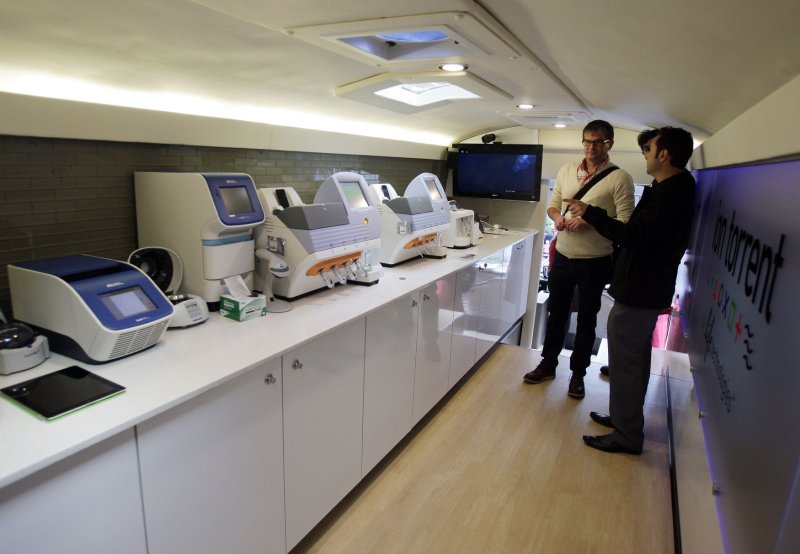Spouses and long-term partners of those with oral cancer related to human papilloma virus appear to have no increased risk of oral HPV, U.S. researchers say.. UPI/John Angelillo |
License Photo
CHICAGO, June 2 (UPI) -- Spouses and long-term partners of those with oral cancer related to human papilloma virus appear to have no increased risk of oral HPV, U.S. researchers say.
Gypsyamber D'Souza, an associate professor of epidemiology at the Johns Hopkins University Bloomberg School of Public Health in Baltimore, said the HPV-related oral cancers were rising in prevalence among U.S. white men and fear of transmitting the virus can lead to anxiety, divorce, and curtailing of sex and intimacy among couples.
Persistent oral HPV infections are a risk for developing oropharyngeal cancers, located at the base of the tongue, tonsils, pharynx and soft palate -- known as head and neck cancer.
"While we can't guarantee that the partners of patients will not develop oral HPV infections or cancers, we can reassure them that our study found they had no increased prevalence of oral infections, which suggests their risk of HPV-related oral cancer remains low," D'Souza said in a statement.
At Johns Hopkins Hospital and three other hospitals, researchers conducted surveys and took oral rinse samples from 166 male and female patients with HPV-related oropharyngeal cancers and 94 spouses and partners. The pilot study also studied patients' tumor samples and performed visual oral examinations of spouses/partners. Of the 94 spouses/partners, six were male.
More than half of patients had at least one type of HPV DNA detectable in their oral rinses, including HPV16, the viral type most commonly associated with oral and other cancers, but after a year, only seven patients still had oral HPV16 DNA detectable.
Among the six, none of the men and 2-of-4 females had HPV16 infections at very low levels. These infections were not detectable one year later. No oral cancers were detected among 60 spouses/partners who underwent a visual oral exam, the study said.
The findings were presented at the American Society of Clinical Oncology annual meeting.















